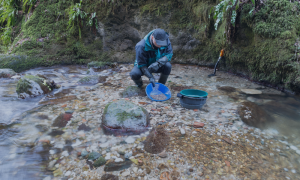
In the aftermath of the global pandemic, the tourism sector has witnessed a significant transformation, with small-group travel emerging as a prevailing trend across Europe. This shift indicates a broader reevaluation of travel preferences and practices by consumers and industry stakeholders. As the continent renowned for its rich tapestry of cultures, history, and landscapes, Europe has positioned itself at the forefront of this burgeoning movement, offering travellers a blend of personalised experiences and sustainable tourism.
Reimagined Travel Dynamics
The pandemic served as a catalyst for change, compelling individuals to reconsider their travel habits. In this new era, the allure of small group travel has intensified, driven by the desire for more meaningful and intimate experiences. Travellers are now seeking to immerse themselves in their destinations’ culture, history, and natural beauty beyond the superficial allure of traditional tourist hotspots. With its diverse offerings, Europe has become a canvas for these explorations, providing many opportunities for small groups to engage deeply with local traditions, cuisines, and communities.
Personalised Experiences at the Heart
Central to the appeal of small group travel is the personalised experience it affords. In contrast to the one-size-fits-all approach of mass tourism, small-group excursions in Europe are tailored to meet the specific interests and preferences of the group. This bespoke approach enhances the travel experience and fosters a greater sense of connection among group members and with the destination. From private tours of the Vatican to cooking classes in Provence, the opportunities for personalised exploration are boundless.
Sustainable and Responsible Tourism
Sustainability has become a cornerstone of travel in the post-pandemic world, with travellers increasingly conscious of their environmental and social footprints. Small-group travel inherently supports sustainable tourism practices by minimising the impact on local ecosystems and communities. Europe’s commitment to sustainability is evident in its promotion of eco-friendly accommodations, responsible travel initiatives, and conservation efforts. Travellers in small groups can contribute positively to their destinations, engaging in activities that support local economies and preserve cultural heritage.
The Role of Technology
Technology has played a pivotal role in facilitating the growth of small-group travel in Europe. Digital platforms and apps have made it easier than ever to customise travel experiences, from booking eco-friendly lodgings to finding off-the-beaten-path attractions. Moreover, social media has enabled travellers to share their experiences in real-time, inspiring others to consider small-group travel a viable and rewarding option.
The Evolution of Connectivity and Community
One of the most profound impacts of small group travel’s rise in Europe is its ability to forge connections. These intimate travel experiences facilitate a deeper understanding among travellers, fostering a sense of community and shared purpose. As individuals from diverse backgrounds come together to explore, they are united by their collective curiosity and mutual respect for the cultures they encounter. This aspect of small group travel not only enriches the personal experience of each traveller but also contributes to a broader sense of global citizenship.
Enhancing Cultural Exchange
Small group travel inherently promotes a more authentic cultural exchange. In Europe, where each country boasts its unique identity, language, and traditions, the opportunity for genuine cultural immersion is vast. Travellers can engage in a more meaningful dialogue with local communities, understanding the nuances of local life beyond the surface level. This form of travel encourages a respectful exchange of ideas and traditions, leading to a more enriched and enlightened traveller and a local community that feels accurately represented and valued.
Economic Impacts and Local Benefits
The shift towards small-group travel has significant economic implications for European communities. By focusing on smaller, more sustainable tourism practices, these groups are more likely to patronise local businesses, from boutique accommodations to family-run restaurants. This model of tourism supports local economies, contributing to job creation and economic stability without the strain of mass tourism. Moreover, it ensures that the benefits of tourism are more evenly distributed, promoting a healthier balance between visitor needs and local welfare.
Challenges and Opportunities
Despite its numerous benefits, the rise of small-group travel in Europe is not without its challenges. Managing the balance between accommodating tourists and preserving the integrity of local communities and environments remains a critical issue. Moreover, as demand for these personalised experiences grows, the industry must continue to innovate to provide unique, authentic experiences without succumbing to the pressures of commodification.
Nevertheless, these challenges also present opportunities for the travel industry and destinations across Europe. There is a clear mandate for the development of sustainable, responsible tourism models that can serve as benchmarks globally. The emphasis on small group travel encourages innovation in tourism offerings, from the integration of augmented reality in historical tours to the development of community-based tourism initiatives that benefit both travellers and locals alike.
Looking Ahead
As we look to the future, the trajectory of small-group travel in Europe is poised for continued growth. This travel model, with its emphasis on personalisation, sustainability, and cultural immersion, aligns with the evolving preferences of today’s travellers. It represents a shift towards a more conscious, connected, and respectful way of exploring the world. Europe, with its rich history, diverse cultures, and natural beauty, remains at the forefront of this movement, offering endless possibilities for those seeking a deeper, more meaningful travel experience.
The post-pandemic era has been a period of reflection and reevaluation, prompting both travellers and the tourism industry to reconsider what truly matters in the quest for new experiences. Small group travel in Europe epitomises this new paradigm, offering a path forward that prioritises depth, community, and sustainability. As this trend continues to unfold, it promises to reshape the landscape of travel, setting new standards for exploring and engaging with the world around us.





